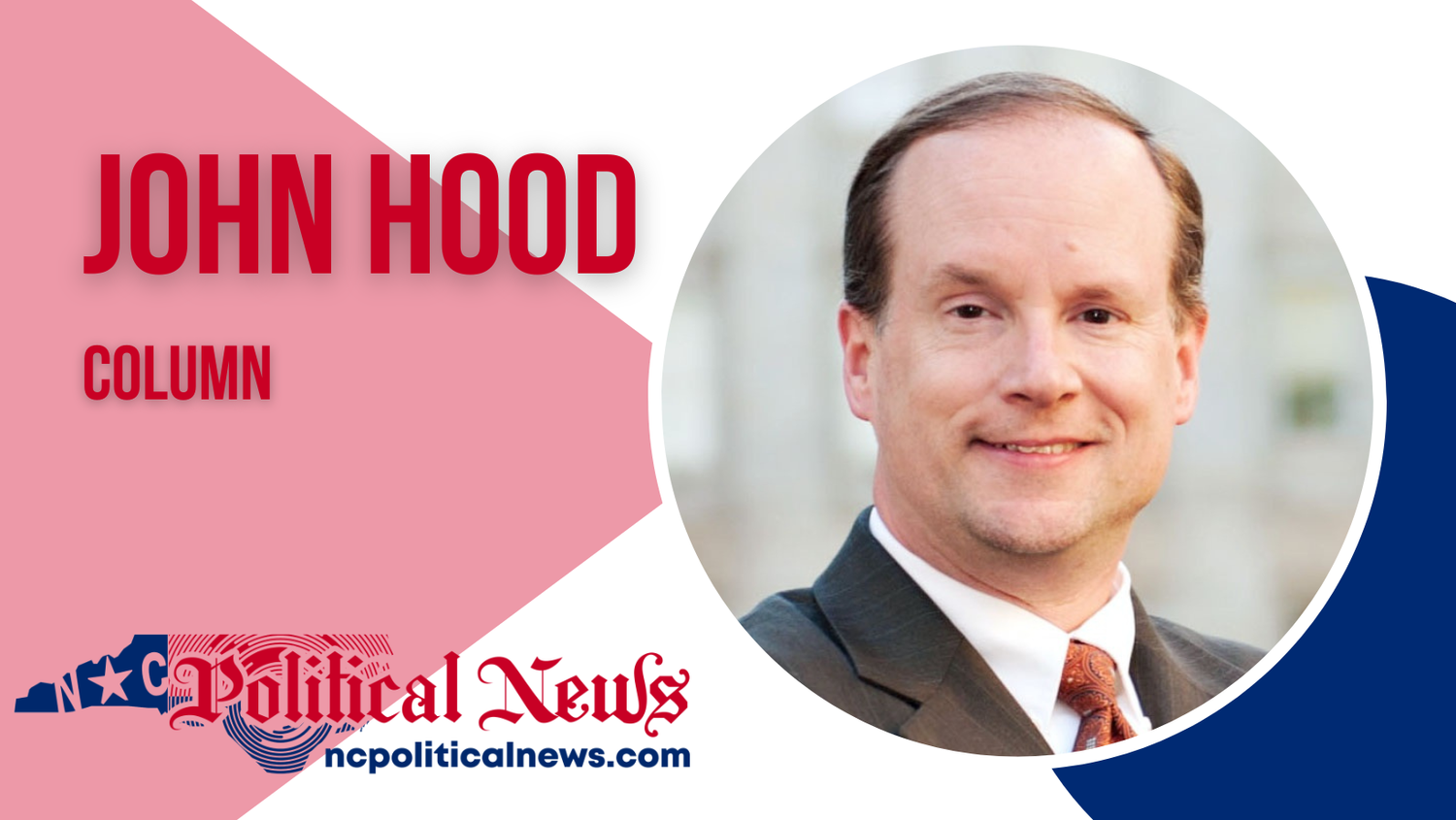John Hood: Lower taxes do attract key leaders
RALEIGH — When Democrats attack pro-growth tax reform as “trickle-down economics,” I can understand their rhetorical intent. But the charge is silly on multiple levels — including the fact that every Democrat who ever serves in state or local office spends much time and effort trying to recruit business executives, entrepreneurs, investors, and professionals to their communities.
All producers and consumers make choices that define and drive an economy. But in every economic system that has ever existed, spanning the spectrum from primitive villages to centrally planned states to modern market-based societies, there are always some folks whose decisions have a larger effect than others.
These leaders exercise disproportionate sway for a variety of reasons. Some lead companies that employ hundreds, thousands, or tens of thousands of people while delivering goods and services to many more. Others are innovators who invent new products, create new firms and industries, or develop new ways to finance and market them. Still others invest large pools of money, and thus help determine which new (or old) businesses gain the capital to thrive and expand.
These economic leaders (ideally) obtain and preserve their influence through voluntary exchange in the market. Other leaders gain their influence over the economy by getting elected or appointed to public office, developing and marketing ideas that attract a large public audience, or heading up major nonprofit institutions.
To observe that economies thrive or sputter partly in response to the decisions of a relatively small group of leaders is not to say that only elites matter or that the rest of us have no recourse if we dislike what they do. Private-sector leaders who make poor decisions run the risk of losing their incomes, jobs, and influence. Government officials do, too — although incumbent politicians are typically harder to displace than incumbent CEOs, and private enterprises are disciplined by consumer choices more often and more effectively than government enterprises are disciplined by voter choices.
Still, there is no question that the fate of North Carolina’s economy, or that of particular regional and local economies within our state, depends to a large extent on whether key economic leaders want to live, work, invest, or create businesses here or do so somewhere else.
Democrats and progressives fully accept this premise. Some even accept the premise that tax policy is a useful tool for attracting and keeping those leaders, which is why they endorse and award targeted tax incentives to politically favored firms (such as manufacturers or tech companies) or politically favored industries (such as renewable energy).
What they reject is the premise that reducing taxes for all executives, entrepreneurs, investors, and professionals will have broad economic benefits. They argue that lower taxes won’t attract more of these individuals to North Carolina, and that virtually none of the tax savings will “trickle down” as more jobs or higher incomes.
As an empirical matter, they are simply mistaken. Most peer-reviewed studies of state and local economies show that lower taxes, particularly on corporate and personal income, are associated with stronger economic growth.
Some of the best studies zero in on particular classes of economic leaders. A 2017 study by Enrico Moretti of the University of California at Berkeley and Daniel Wilson of the Federal Reserve Bank of San Francisco looked at location decisions by “star scientists” — those who rank in the top 5% nationally in the number of patented inventions. They found that such scientists were disproportionately to be found in states with lower taxes on personal and corporate income. Other amenities also matter, of course, but “there are enough firms and workers on the margin that relative taxes matter,” Moretti and Wilson concluded.
I’d venture to say that few Democrats or progressives would question the social value of attracting top-performing scientists. These individuals help create innovation economies with lots of localized spillover effects — new companies, more jobs, higher incomes that are spent on other goods and services.
The effect is hardly a trickle. It’s a river.
John Hood is a John Locke Foundation board member. His latest books, Mountain Folk and Forest Folk, combine epic fantasy with early American history (FolkloreCycle.com).
Are you tired of being bombarded by paywalls and pop-up ads when trying to read the news? Do you believe that access to reliable political news should be free and accessible to everyone? Then we urge you to support NC Political News, a weekly electronic political news outlet.
NC Political News is committed to providing high-quality, unbiased political reporting with columnists from all political sides. Unlike other news outlets, NC Political News is free to read and supported by businesses who purchase ad space on our website and in our newsletter, which goes out Monday through Friday at 7:00 am. This means that readers like you can access the news without being asked to pay a cent or dealing with frustrating advertisements.
However, to continue providing this valuable service, NC Political News needs your support. If you believe in the importance of accessible, free news, we urge you to click the image below. Any amount of support is appreciated.
Together, we can keep the news free and help ensure our state stays informed and connected.




